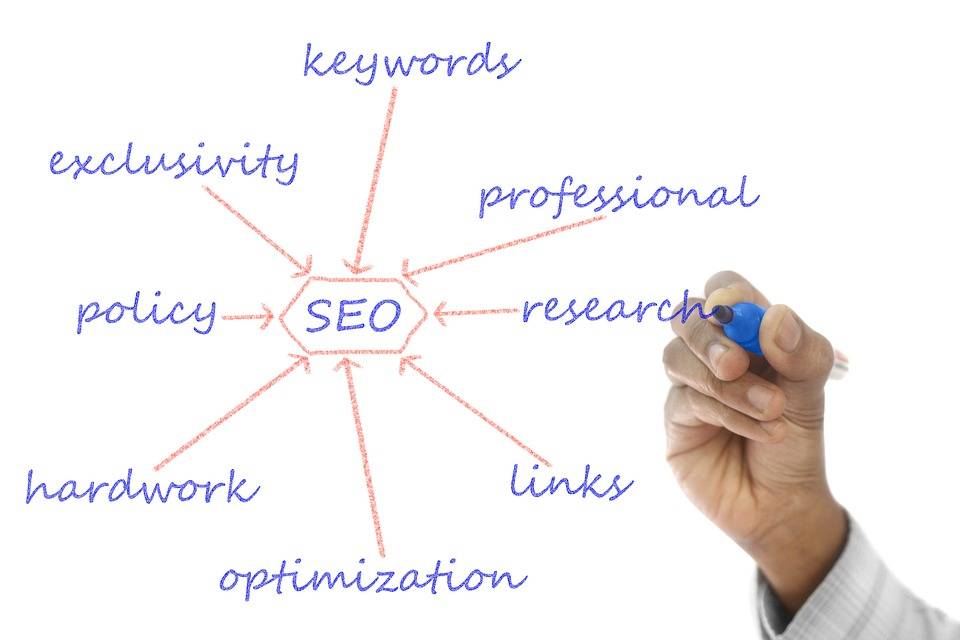Entrepreneur | Posted on |
5 White Hat SEO Tactics That Will Get You in Trouble
0
2282 Views
Your read an SEO guide, went through all the do’s and don’ts, and are now ready like a true-SEO ninja to get your website rank higher on Google.
Isn’t that how everyone goes about when trying to champion Google and other search engines?
In fact, if you, too, want to give your website a boost on SERP (Search Engine Result Pages), it’s very likely that you have followed the same process.
Nothing wrong. Nothing at all. Except, the process is flawed and needs to be scrapped immediately.
The New Rules of SEO Where “Good” Isn’t Always Good
One of the biggest problems of consuming such beginner and advanced SEO guides is that the majority of them are outdated. Hush and you might even hear them scream, “update me, please.”
Following the Pigeon, Panda, Penguin, and so many other Google algorithm updates, in a not-so-new news, the SEO landscape has changed. A lot. And it demands that we change our approach towards it as well.
Indeed, black hat SEO is fatal and should be done away for good. However, the hyped white hat SEO techniques aren’t perfect either.
Yes, not all “good ones” are good. Actually, some of them can even get you in trouble if you’re mindlessly implementing them on your website.
Also read about Spamming Checker Tools here.
Let’s get to the main part.
Here are 5 “good” SEO tactics that can get your website in trouble:
1. Extra-long content
Long-form content pieces perform better on search engines. According to a report by Brian Dean of Backlinko, the average Google first page result contains 1,890 words. Several other studies and researches, too, conclude similarly. A blog post on CoSchedule claimed that one needs to write 2,000+ words articles to rank higher on SERP.
There’s no denying that search engines reward long contents because naturally, they are more comprehensive and insightful as opposed to the 500-words pieces. However, here’s where so many people take this simple method the wrong way.
“I must write a super long article.” It doesn’t matter whether there’s a demand for it and if it applies in my niche or not— “I must do it.”
Here’s a very simple that you need to understand. Not every target audience would like to stop and read a 2000-words article. And this tactic doesn’t suit every niche.
For example, you can’t have an article on “how to make Irish coffee” that runs into 2k words. Or you can’t write a news piece (like what did Trump say in his latest Twitter tirade) in a long piece. Because it doesn’t make sense!
What will you really write when the main content of the article can be summed in 300-words? Of course, there would be fluff. Now, would your readers really appreciate the additional 1700-words no-value content? Likely not; and neither will the search engines.
Similarly, you can’t write a super-long piece of content for teenagers and working professionals, depending on your niche and the device they are using, because they don’t have that much time and patience.
So, this generic idea that we have come to terms with that long-articles are perfect for SEO is completely delusional.
Meaning, have you been shelling long-articles unnecessarily, just for the sake of it, it’s about time you’re penalized by search engines for poor quality, irrelevant pieces of content.
2. Chasing the do Follow backlinks
DoFollow backlinks are the holy grail in the SEO world. You get them, and you can dominate the search rankings.
Or at least that’s the general notion among so many people.
Matt Cutts, the head of search spam at Google, in one of his videos admitted that as we move forward, over time, backlinks would become less relevant. And that was 4 years back, in 2014.
No doubt, today, in 2018, backlinks are important. They are one of the most important ranking factors.
But here’s the clichéd fact in this area—not all backlinks are equal.
A lot depends on the kind of website that’s providing you the backlinks, where its server is located, what kind of content it hosts and plenty of other subtle signals.
If the quality of the website isn’t good and it isn’t relevant to what you’re offering, not only will that backlink be useless for you, it might even hurt your rankings.
Also, here’s another myth that prevails among many: DoFollow links are the best.
Yes, doFollow links pass on the ‘link juice’ to the linked website. However, in the modern SEO world, noFollow links are just as important, if not more.
While search engines have denied it rigorously, marketing pundits agree that search spiders do crawl the noFollow links; only, they don’t let this crawl affect the search ranking of that particular website.
Also, today, there’s a thing called “branding” that search engines have been prioritizing a lot.
Say, if you mention the name “HubSpot” in one of your articles and NOT link back to HubSpot, the search spiders will pick that brand mention and reward that brand.
This indicates just how smart the search spiders have become these days in deciding which website/brand should be credited or penalized.
Perhaps, backlinks are not losing their relevance. However, the line between the link types (DoFollow and NoFollow) has blurred.
Besides, there’s also a risk that if you’re getting too much of doFollow backlinks, it may reek of link farming practice, which can get your website penalized.
So, stop doing what so many people in the SEO world are doing, which is thoughtlessly chasing the doFollow backlinks.
There’s plenty of its-and-bits to backlinks that it’s about time you start thinking of.

3. Linking to every other website
There was a time when linking back to other websites was a frown-upon practice among SEOs. They would fear spreading/leaking the hard-earned link juice to other websites.
Then search engines got much smarter. Google introduced many algorithm updates. And came the time that smart professionals understood, linking to other authority is actually a good practice.
The outbound links help search engines better understand your content.
And when you start associating (linking) to other high-quality, authority URLs, you automatically improve your own repute and trustworthiness.
The problem, here, came when many people started misusing this practice. They started irrelevantly linking to every other website that they possibly could, hoping to get rewarded.
To be precise, there are two major issues here:
(i) Linking to too many websites
(ii) (Unconsciously) associating with poor quality websites
Both the issues can get a website in trouble. Sadly, it is something that SEOs and marketers are still coming to terms with.
Today, the basic rule of linking (inbound or outbound) is that the link must be used in the most natural way.
Because the search spiders can easily recognize it if the links aren’t naturally plugged. And if that’s the case, it can definitely get you in trouble.
So, stop using outbound links where they are not needed. They are great to give your search ranking a (meagre) push up. But you need a certain strategy here to pull it successfully.
4. Trying to keep website “ultra-fast”
Here’s a quick fact: a mobile landing page usually takes an average of 22 seconds to load completely. However, 53 percent of people leave a mobile page if it takes longer than 3 seconds to load.
In fact, 64 percent of Smartphone users expect pages to load in less than 4 seconds.
For this same purpose did Google launch AMP (Accelerated Mobile Page) back in 2015 that, if implemented well, can load a search landing page in less than half a second.
So, it’s quite natural to believe that the faster the website, the more rewards you will reap.
Indeed, that is irrefutable.
But the issues spring when you go to extreme levels to make this happen where disadvantages far outweigh all the benefits.
Increasing your website speed comes with several trade-offs. You need to strip your website off several features and components to accelerate its loading time.
And when you do this, you’re simply reducing the functionality of your website, which isn’t something good all the time.
You would have to settle for poor-quality font source, do away with video contents from landing page, get rid of that lead generation chat box, say goodbye to the pop-up CTA box, and more.
All these steps can easily boost your website loading time. But they would also compromise on your UX, conversion rate and few other metrics.
Now, is that a good thing? Certainly not.
Meaning to say, attempting to get your website run ultra-fast like a jaguar isn’t always very rewarding.
If you’re blindly chasing this goal and not thinking properly about what you’re doing in the process, you will face problems in the coming days.
5. Focusing on keyword research
A decade back, keywords research was the foremost SEO technique for many. The recipe was extremely simple. Plug in common keywords in the webpage and you would rank high on SERP.
Search engines made several changes to counter this trickery, and then everyone started chasing the long-tail keywords.
Things progressed further, search algorithms changed some more, and people started talking about the medium-tail keywords.
Again, there were slight shakeups in the algorithm, Google outdid the spam practices. And now everyone is left talking about the LSI (Latent Semantic Indexing) keywords.
While it’s a fairly good news that we have always managed to keep up with Google, sadly we’re still clueless about what the search engine really wants us to do—
STOP FOCUSING on keywords more than you should. And start focusing on things that matter your audience the most.
This is the same reason why content marketing has come in a dead-spotlight in recent times. Because it comes very close to providing something to the end users rather than try to cheat the ranking system.
This is not to say that you shouldn’t do keywords research. You should! But stop giving too much time in this department.
Your piece of content requires keywords to rank higher. But above that, it requires a substance and high value. If it’s unique, engaging and valuable, even without “exact” keywords, in an age of Rankbrain, it will rank higher on Google’s SERP.
If you spend too much time on keywords research, you would also have to spend time thinking about keywords density, proximity, variants and whatnot.
And while these may sound very good theoretically, on a practical level, today, they are less relevant than ever. Spending too much time on these aspects is equivalent to wasting time.

CONCLUSION
Rules are meant to be broken. And this is perfectly apt in the SEO world where those rules have always been kind of blurry.
Just because they come under the “white hat” label doesn’t mean they are absolutely good and you can blindly follow them.
Yes, at a time when search engines want nothing less than “high-quality”, which is quite ambiguous in its definition, the white-hat tactics aren’t always safe if you’re not careful in their implementation.
Think thoroughly before you take any step. The wrong move in the cloak of “good” can get your website into trouble.
